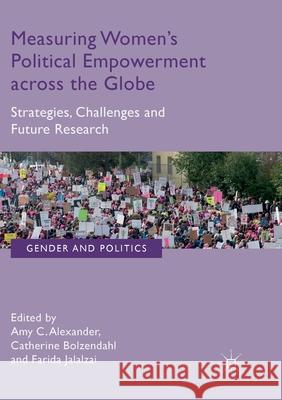Measuring Women's Political Empowerment Across the Globe: Strategies, Challenges and Future Research » książka
topmenu
Measuring Women's Political Empowerment Across the Globe: Strategies, Challenges and Future Research
ISBN-13: 9783319876979 / Angielski / Miękka / 2018 / 303 str.
Measuring Women's Political Empowerment Across the Globe: Strategies, Challenges and Future Research
ISBN-13: 9783319876979 / Angielski / Miękka / 2018 / 303 str.
cena 441,75
(netto: 420,71 VAT: 5%)
Najniższa cena z 30 dni: 424,07
(netto: 420,71 VAT: 5%)
Najniższa cena z 30 dni: 424,07
Termin realizacji zamówienia:
ok. 22 dni roboczych
Dostawa w 2026 r.
ok. 22 dni roboczych
Dostawa w 2026 r.
Darmowa dostawa!
Kategorie BISAC:
Wydawca:
Palgrave MacMillan
Seria wydawnicza:
Język:
Angielski
ISBN-13:
9783319876979
Rok wydania:
2018
Wydanie:
Softcover Repri
Ilość stron:
303
Waga:
0.38 kg
Wymiary:
21.01 x 14.81 x 1.7
Oprawa:
Miękka
Wolumenów:
01
Dodatkowe informacje:
Wydanie ilustrowane











